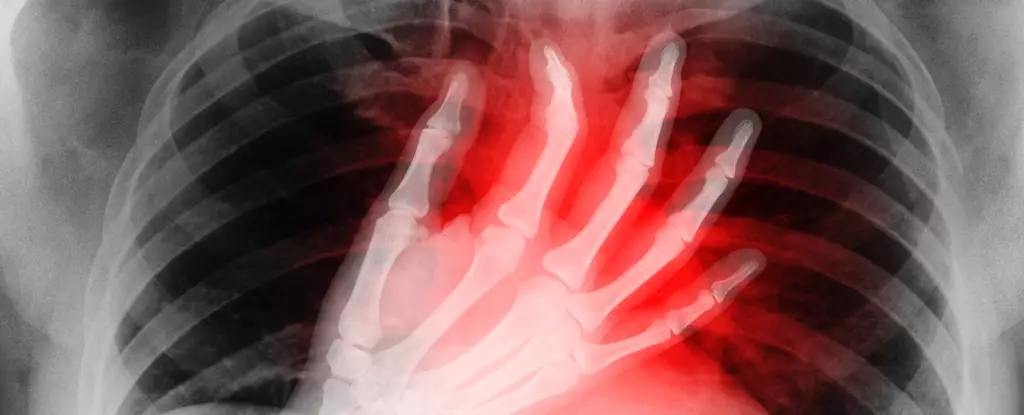As the holiday season approaches, many individuals eagerly anticipate the celebrations that often accompany this joyous time of year, including workplace Christmas parties and family gatherings. While these events foster joy and camaraderie, they can also lead to excessive alcohol consumption, creating health risks that some may not fully recognize. One particular phenomenon notably seen during the festive season is known as “holiday heart syndrome,” a term that describes the rapid or irregular heartbeat often triggered by binge drinking and other stressors associated with this time of year.
Holiday heart syndrome refers to a temporary condition characterized by irregular heart rhythms that emerge after episodes of heavy drinking. This syndrome is not exclusive to one demographic or season but tends to be more pronounced during the holidays when social gatherings frequently lead to increased alcohol intake. Individuals might experience symptoms such as heart palpitations, lightheadedness, or shortness of breath, prompting some to seek immediate medical attention. This uptick in emergency department visits around the holidays showcases the need for public awareness regarding the relationship between alcohol consumption and heart health.
Interestingly, the term “holiday heart” is not a new concept; it has been recognized by the medical community for nearly fifty years. Initially documented in the 1970s, the condition illustrates how binge drinking can induce arrhythmias even in otherwise healthy individuals without pre-existing heart conditions, primarily after weekends or public holidays. Despite this, holiday heart syndrome serves as a cautionary reminder that heightened alcohol consumption can pose serious risks at any time of the year, not just during festive events.
Understanding how alcohol affects our bodies highlights the complexity of holiday heart syndrome. Alcohol can disrupt the nervous system, significantly affecting various bodily functions. One of the primary consequences is dehydration, a phenomenon exacerbated by excessive drinking that leads to inflammation. This combination can disturb the heart’s electrical signals, resulting in arrhythmias.
In many cases, individuals may arrive at hospitals exhibiting symptoms like chest pain or fainting spells. Yet, it’s crucial to note that some people may have an irregular heartbeat without any noticeable symptoms. Such silent cases often come to light during investigations for unrelated health issues, underscoring the importance of regular health check-ups and awareness of one’s body.
Diagnosis and Treatment Options
When presented with symptoms suggestive of holiday heart syndrome, healthcare professionals typically conduct a series of diagnostic tests to determine the severity and nature of the arrhythmia. This may include an electrocardiogram (ECG), a simple but effective procedure that captures the heart’s electrical activity. The ECG provides critical information, particularly the “p wave,” which indicates the functioning of the heart’s upper chambers.
Patients may also undergo blood tests to assess electrolyte levels and examine markers related to clotting, inflammation, and organ function. Fortunately, the prognosis for most patients diagnosed with holiday heart syndrome is favorable, especially for those who seek timely medical intervention and make conscious efforts to reduce their alcohol intake. However, it’s essential to recognize that some individuals may face more persistent arrhythmias, such as atrial fibrillation, which could necessitate medications or more advanced procedures like cardioversion or cardiac ablation to stabilize heart rhythm.
Preventative strategies play a crucial role in mitigating the effects of holiday heart syndrome. Although no specific quantity of alcohol is pinpointed as a triggering threshold, the consensus among health professionals is clear: avoiding binge drinking is the best approach. Current Australian health guidelines recommend that men and women limit their alcohol consumption to a maximum of ten standard drinks per week and no more than four on any single day.
In addition, hydration is vital. Alternating alcoholic beverages with water can help combat dehydration and lessen the likelihood of experiencing heart rhythm complications. Furthermore, incorporating stress management techniques, maintaining a consistent exercise routine, and adopting a heart-healthy diet are instrumental in promoting overall cardiovascular well-being.
As the festive season unfolds, it is imperative to strike a balance between enjoyment and health. By staying informed and taking proactive measures, individuals can celebrate their holidays while minimizing risks related to holiday heart syndrome and ensuring a healthy heart for years to come.


Leave a Reply